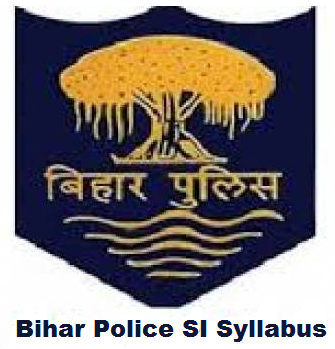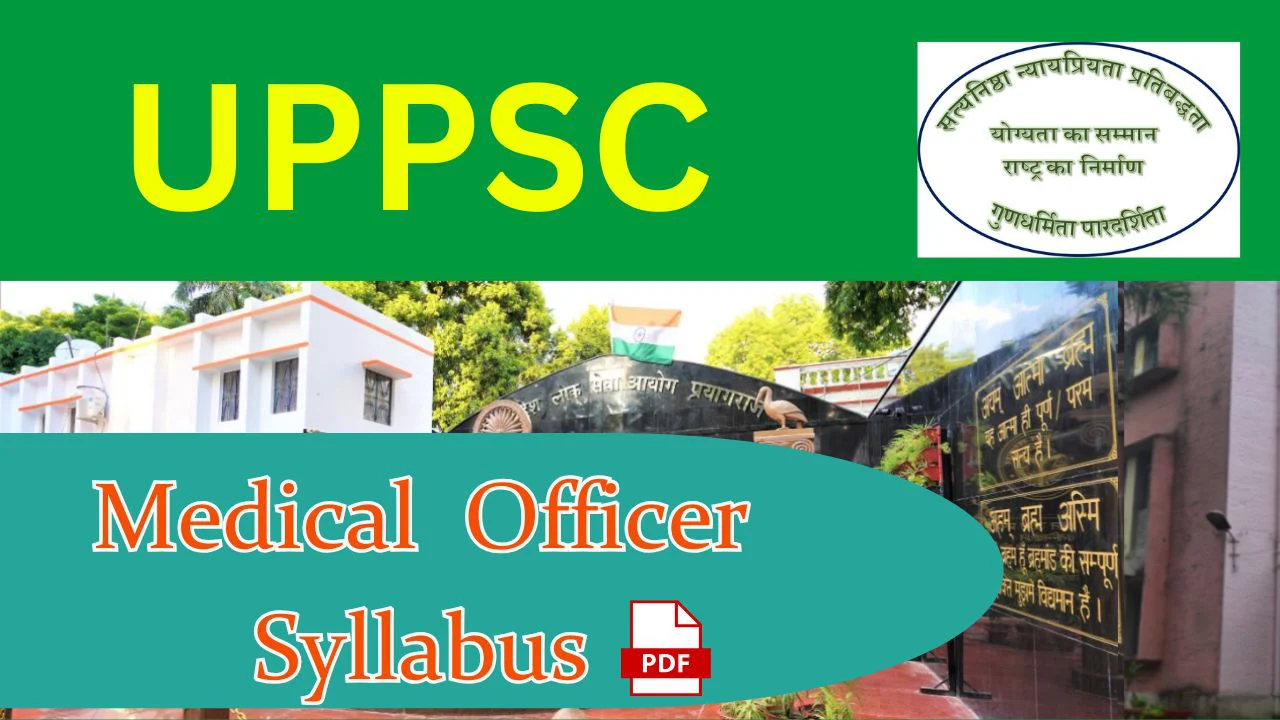APPSC Group 1 Syllabus 2024 గ్రూప్ 1 సిలబస్ has been updated here on this page. Candidates who are all looking for the APPSC Group 1 Syllabus 2024 may all able to Download from here. Andhra Pradesh Public Service Commission has issued the APPSC Group 1 Syllabus 2024 online. Interested candidates can fill now. The last Date to apply for the APPSC Group 1 Notification is 21st January 2024. Download APPSC Group 1 Syllabus 2024 in Telugu & English Format. Also, check APPSC Group 1 Exam Pattern 2024. Also, we had provided the APPSC Group 1 Syllabus 2024 for both Prelims & Mains.
APPSC Group 1 Exam Pattern 2024
The APPSC Group 1 Posts are Deputy Collectors, Road Transport Officers (RTOs), Commercial Tax Officers (CTOs), District Registrar (Stamps and Registrations), District Tribal Welfare Officer, District Social Welfare Authority, District BC Welfare Officer, DSP (Civil), DSP (Prisons/ Men), District Fire Officer (DFO), Assistant Labor Commissioner, Municipal Commissioner, Municipal Commissioner Grade-2, Deputy Registrar (Cooperative Department), Lay Secretary And Treasurer Grade-2, ATO / AAO (Treasury Department), AAO (DSA) (State Audit Department), AO (Director and Public Health and Family Welfare), AOPDO posts.
APPSC Group 1 Syllabus 2024 Overview
| Name of The Organization | Andhra Pradesh Public Service Commission (APPSC) |
| No. of Posts | 92 |
| Name of the Posts | Group-I Services |
| Job Category | Andhra Pradesh Govt Jobs |
| Educational Qualifications | Degree |
| Job Location | Andhra Pradesh |
| Application Mode | Online Process |
| Last Date | 21st January 2024 |
| Official Website | psc.ap.gov.in |
APPSC Group 1 Syllabus 2024 for Prelims & Mains (Telugu & English)
ఆంధ్రప్రదేశ్ పబ్లిక్ సర్వీస్ కమిషన్ ఇటీవల ఆన్లైన్లో APPSC గ్రూప్ 1 నోటిఫికేషన్ 2024ని ప్రకటించింది. APPSC గ్రూప్ 1 దరఖాస్తు ఫారమ్ 2024 ఇప్పుడు సక్రియంగా ఉంది. APPSC గ్రూప్ 1 దరఖాస్తు ఫారమ్ 2024ని సమర్పించడానికి చివరి తేదీ నవంబర్ 2, 2024. దిగువ ఇచ్చిన లింక్ల నుండి ఇప్పుడే డౌన్లోడ్ చేసుకోండి. APPSC గ్రూప్ 1 సిలబస్ 2024ని సిద్ధం చేయడం ద్వారా మీరు ఎక్కువ మార్కులు సాధించవచ్చు.
APPSC Group 1 Exam Pattern 2024
Screening Test – WRITTEN EXAMINATION (OBJECTIVE TYPE)
| Subject | No. Of question | Duration Minutes | Maximum Marks |
| Screening Test (Objective Type) Paper -I General Studies. This paper consists of 04 parts i.e., ABCD each part carries 30 marks
| 120 Questions | 120 Minutes | 120 Marks |
| Screening Test (Objective Type) Paper -II General Aptitude This paper consists 2 parts i.e., A and B each part carries 60 Marks (Part-A – 60 Marks, Part -B (i) – 30 Marks and B (ii) – 30 Marks).
B. (i) Science and Technology (ii) Current events of Regional, National and International importance | 120 Questions | 120 Minutes | 120 Marks |
N.B: NEGATIVE MARKS: As per G.O. Ms. No.235, Finance (HR-I, Plg & Policy) Dept.,Dt.06/12/2016, for each wrong answer will be penalized with 1/3rd of the marks prescribed for the question.
MAINS – WRITTEN EXAMINATION (DESCRIPTIVE TYPE)
| Paper in Telugu | Qualifying Nature | 180 minutes | 150 Marks |
| Paper in English | Qualifying Nature | 180 minutes | 150 Marks |
| Paper – I General Essay – on contemporary themes and issues of regional, national and international importance. | – | 180 minutes | 150 Marks |
| Paper-II History and Cultural and Geography of India and Andhra Pradesh | – | 180 minutes | 150 Marks |
| Paper -III Polity, constitution, Governance, Law and Ethics | – | 180 minutes | 150 Marks |
| Paper -IV Economy and Development of India and Andhra Pradesh | – | 180 minutes | 150 Marks |
| Paper -V Science, Technology and Environmental Issues | – | 180 minutes | 150 Marks |
| INTERVIEW | 75 Marks | ||
| TOTAL MARKS | 825 Marks | ||
- The medium of exam is English, Telugu
- The time duration of each paper is 150 Minutes.
APPSC Group 1 Syllabus 2024 Download Telugu & English
we have given the direct link to download the APPSC Group 1 Exam Syllabus 2024 in PDF format. Applicants have to know that the given APPSC Group 1 Exam Syllabus 2024 is directly taken from the official site of the Andhra Pradesh Public Service Commission (APPSC).
Screening Test (Objective Type) Paper -I
Topic | Syllabus |
History and Culture. |
|
Constitution polity, Social Justice and International relations. |
|
Indian and Andhra Pradesh Economy And Planning. | Basic characteristics of Indian Economy as a developing economy – Economic development since independence objectives and achievements of planning – NITI Ayog and its approach to economic development – Growth and distributive justice – Economic development Human Development Index – India’s rank in the world – Environmental degradation and challenges – Sustainable Development – Environmental Policy National Income and its concepts and components –India’s National Accounts – Demographic issues – Poverty and Inequalities – Occupational Structure and Unemployment – Various Schemes of employment and poverty eradication – Issues of Rural Development and Urban Development Indian Agriculture –Irrigation and water – Inputs of agriculture – Agricultural Strategy and Agricultural Policy – Agrarian Crisis and land reforms – Agricultural credit – Minimum Support Prices -Malnutrition and Food Security – Indian Industry – Industrial Policy – Make-in India – Start-up and Stand-up programmes – SEZs and Industrial Corridors – Energy and Power policies – Economic Reforms – Liberalisaion, Privatisation and Globalization –International Trade and Balance of Payments – India and WTO Financial Institutions – RBI and Monetary Policy – Banking and Financial Sector Reforms – Commercial Banks and NPAs – Financial Markets –Instabilities – Stock Exchanges and SEBI – Indian Tax System and Recent changes – GST and its impact on Commerce and Industry – Centre, States financial relations- Financial Commissions – Sharing of resources and devolution – Public Debt and Public Expenditure – Fiscal Policy and Budget i) The characteristics/ basic features of Andhra Pradesh economy after bifurcation in 2014 – Impact of bifurcation on the endowment of natural resources and state revenue – disputes of river water sharing and their impact on irrigation – new challenges to industry and commerce – the new initiatives to develop infrastructure –power and transport -information technology and e-governance – Approaches to development and initiatives in agriculture, industry and social sector – Urbanisation and smart cities – Skill development and employment – social welfare programmes ii) A.P. Reorganisation Act, 2014 – Economic Issues arising out of bifurcation – Central government’s assistance for building a new capital, compensation for loss of revenue, development of backward districts – Issues such as Vizag railway zone, Kadapa steel factory, Dugarajapatnam airport, Express ways and industrial corridors , – Special Status and Special Assistance- Controversy – Government’s stand and measure |
| Geography. | General Geography: Earth in Solar system, Motion of the Earth, Concept of time, Season, Internal Structure of the Earth, Major landfornns and their features. Atmosphere-structure and composition, elements and factors of Climate, Airmasses and Fronts, atmospheric disturbances, climate change. Oceans: Physical, chemical and biological characteristics, Hydrological Distasters, Marine and Continental resources. Physical: World, India and concerned State : Major physical divisions, Earthquakes, landslides, Natural drainage, climatic changes and regions, Monsoon, Natural Vegetation, Parks and Sanctuaries, Major Soil types, Rocks and Minerals. Social: World, India and concerned State : distribution, density, growth, Sex-ratio, Literacy, Occupational Structure, SC and ST Population, Rural-Urban components, Racial, tribal, religious and linguistic groups, urbanization, migration and metropolitan regions. Economic: World, India and concerned State: Major sectors of economy, Agriculture, Industry and Services, their salient features. Basic Industries-Agro, mineral, forest, fuel and manpower based Industries, Transport and Trade, Pattern and Issues. |
Screening Test (Objective Type) Paper -II
| Topic | Syllabus |
General Mental Ability, Administrative and Psychological Abilities. |
|
Science and Technology |
|
Current events of Regional, National and International importance | Current events of Regional, National and International importance |
APPSC Group 1 Mains Exam Syllabus
| Topic | Syllabus |
| Paper in English / Telugu | ESSAY, LETTER WRITING, PRESS RELEASE/ APPEAL, REPORT WRITING, WRITING ON VISUAL INFORMATION, FORMAL SPEECH, PRECIS WRITING, READING COMPREHENSION, ENGLISH GRAMMAR,TRANSLATION |
| Paper – I General Essay – on contemporary themes and issues of regional, national and International importance. | ,Pre-Historic Cultures in India- Indus Valley Civilization- Vedic Culture- Mahajanapadas- Emergence of New Religions-Jainism, Buddhism- Rise of the Magadha and Age of the Mauryas- Ashoka Dharma- Foreign Invasions on India- The Kushans. The Satavahanas, the Sangam Age in South India- the Sungas- the Guptas- the Kanauj and their Contributions- Historical Accounts of Foreign travelers- Early Educational Institutions. The Pallavas, the Badami Chalukyas, the Eastern Chalukyas, the Rashtrakutas, the Kalyani Chalukyas and the Cholas- Socio Cultural Contributions, Language, Literature Art and Architecture- Delhi Sultanates- Advent of Islam and its Impact- Religious Movements like Bhakti and Sufi and Its Influence. Growth of Vernacular Languages, Scripts, Literature, Fine Arts- Socio Cultural Conditions of the Kakatiyas, the Vijayanagaras, the Bahmanis, the Qutubsahis and their cotemporary South Indian kingdoms. The Mughals Administration, Socio-Religious life and Cultural developments- Shivaji and Rise of Maratha Empire- Advent of Europeans in India. Trade practices- Rise of East India Company its Hegemony- Changes in Administration, Social and Cultural spheres- Role of Christian Missionaries. Rise of British rule in India from 1757 to 1856 – Land Revenue Settlement, Permanent Settlement, Ryothvari and Mahalvari-1857 Revolt and its Impact-Education, Press, Cultural changes- Rise of National Consciousness and Changes- Socio-Religious Reform Movements in 19th century- Rajaram Mohan Roy, Dayananda Saraswathi, Swamy Vivekananda, Annie Besant, Sir Syed Ahmad Khan and others. Rise of Indian Nationalism- Activities of Indian National Congress- Vandemataram, Home Rule Movements- Self Respect Movement- Jyothiba Phule, Narayana Guru, Periyar Ramaswamy Naicker- Role of Mahatma Gandhi, Subhash Chandra Bose, Vallabai Patel- Satyagraha- Quit India Movement- Dr B.R. Ambedkar and his Contributions. Indian Nationalism in three phases- Freedom Struggle 1885-1905, 1905-1920 and Gandhi Phase 1920-1947- Peasant, Women, Tribal and Workers Movements- Role of Different parties in Freedom Struggle- Local and Regional Movements- Inter Religious Unity and Communalism. Independence and Partition of India- India after Independence- Rehabilitation after partition- Linguistic Re-organization of States- Integration of the Indian States- Indian Constitution- Economic policies- Foreign Policy Initiatives. |
| History and Culture of India and Andhra Pradesh | Ancient: The Satavahanas, the Ikshvakus, the Salankayanas, the Pallavas and the Vishnukundins- -Social and Economic Conditions- Religion, Language (Telugu), Literature, Art and Architecture- Jainism and Buddhism in Andhra. The Eastern Chalukyas, the Rashtrakutas, the Renati Cholas and others- Socio-Cultural life, Religion- Telugu Script and Language, Literature, Art and Architecture. Medieval: Socio- Cultural and Religious Conditions in Andhradesa 1000 to 1565 A.D.- Antiquity, Origin and Growth Telugu Language and Literature (Kavitraya- Asthadiggajas)- Fine Arts, Art& Architecture during the reign of Kakatiyas, Reddis, Gajapatis and Vijayanagaras and their feudatories. Historical Monuments-Significance, Contribution of Qutubshahis to Andhra History and Culture-Regional Literature- Praja Kavi -Vemana and others. Modern: European Trade Establishments in Andhra- Andhra Under the Company Rule- Role of Christian Missionaries- Socio-Cultural, Literary Awakening- C.P. Brown, Thamos Munro, Mackenzie-Zamindary, Polegary System- Native States and Little Kings. Role of Social Reformers- Gurajada Apparao, Kandukuri Veeresalingam, Raghupati Venkataratnam Naidu, Gidugu Ramamurthy, Annie Besant and others- Library Movement in Andhra Pradesh- Role of News Paper- Folk and Tribal Culture, Oral Traditions, Subaltern Culture, Role of women. Nationalist Movement: Role of Andhra leaders- Justice Party, Non-Brahmin Movement- Nationalist and Revolutionary Literature- Gurram Jashva, Boyi Bheemanna, Sri Sri, Garimella Satyanarayana, Rayaprolu Subbarao, Unnava Lakshminarayana, Tripuraneni Ramaswamy Choudhary and others. Andhra Mahasabhas, Andhra Movement- prominent leaders- Alluri Sitaramraju, Duggirala Gopalakrishnaiah, Konda Venkatappayya,Pattabhi Seetaramaiah, Ponaka Kanakamma, Dokka Sitamma- Grandhlaya Movement- Ayyanka Venkataratnam, Gadicherla Harisarvothamarao, Kasinanathuni Nagesvara Rao- Potti Sreeramulu Formation of Andhra State,1953- Emergence of Andhra Pradesh,1956- Andhra Pradesh 1956 to2014- Causes for Bifurcation, 2nd June 2014 Impact. Andhra Pradesh: Bifurcation of Andhra Pradesh and its impact on Administrative, Economic, Social, Political, Cultural and Legal Implications- Loss of Capital City, Building of New Capital and its financial Implications- Division of Employees and their Native Issues- Effect of Bifurcation on Trade& Commerce, Industry – Implication of Financial Resources of State Government. Developmental Opportunities- Socio-Economic, Cultural and Demographic impact of Bifurcation- Impact on River water sharing and other link issues- Andhra Pradesh Reorganization Act.2014- the Arbitrariness of certain provisions. |
| Geography: India and Andhra Pradesh | Physical Features and Resources: India and Andhra Pradesh, Major land forms, Climatic changes, Soil types, Rivers, Water, Streams, Geology, Rocks, Mineral Resources, Metals, Clays, Construction Materials, Reservoirs, Dams —Forests, Mountains, Hills, Flora and fauna, Plateau Forests, Hill Forests, Vegetation Classification. Economic Geography : Agriculture, Live stocks, Forestry, Fishery, Quarrying, Mining, House hold Manufacturing, Industries — Agro, Mineral, Forest, Fuel and man power, Trade and Commerce, Communication, Road Transport, Storage and others. Social Geography: Population Movements and Distribution, Human Habitations, Density, Age, Sex, Rural, Urban, Race, Caste, Tribe, Religion, Linguistic, Urban Migration, Education Characteristics. Fauna and Floral Geography: Wild Animals, Animals, Birds, Reptiles, Mammals, Trees and Plants and others. Environmental Geography: Sustainable Development, Globalization, Temperature, Humidity, Cloudiness, Winds, Special Weather Phenomena, Natural Hazards — Earth Quakes, Land Slides, Floods, Cyclones, Cloud Burst, Disaster Management, Impact Assessment, Environmental Pollution, Pollution Management. |
| Paper -III Polity, constitution, Governance, Law and Ethics | Indian Polity and Constitution: Indian Constitution and its salient features – Functions and duties of the Indian Union and the State Governments. Issues and challenges pertaining to the Federal structure — Role of Governor in States – Distribution of powers between the Union and States (Union list, State list and Concurrent list) — Issues and challenges. Rural and Urban Local Governance under 73rd and 74th Constitutional Amendment – Constitutional Authorities and their Role. Parliament and State Legislatures — structure, functioning, conduct of business, powers & privileges and issues arising out of these. Judiciary in India — Structure and functions, important provisions relating to emergency and constitutional amendments, judicial review, Public Interest Litigation. Public Administration and Governance : Meaning, Nature and Scope of Public Administration — Evolution in India —Administrative ideas in Kautilya’s Arthashastra; Mughal administration; Legacy of British rule. Government policies and interventions for development in various sectors and issues and problems of implementation. Development processes – the role of civil society, NGOs and other stakeholders – Statutory, regulatory and various quasi-judicial authorities – Role of Civil Services in Democracy. Good governance and e-governance- Transparency, accountability and responsiveness in governance — Citizen’s Charter. RTI, Public Service Act and their implications, Concept of Social Audit and its importance. Ethics in Public Service and knowledge of law Ethics and Human Interface: Essence, determinants and Consequences of Ethics in Human actions: dimensions of Ethics: Ethics in Private and Public relationships, Ethics- integrity and Accountability in Public Service. Human values: Understanding the Harmony in existence Human relationships in the society and in the Nature. Gender Equability in the relationships Role of family, society and Educational Institutions in imparting values to citizens, lessons from the lives and teachings of great leaders, reformers and administrations. Attitude: Content, Functions, its influence and relation with thought and behaviour, Moral and Political attitudes, role of Social influence and persuasion. Emotional intelligence- Concepts and their utilities and application in Administration and Governance. Concept of Public Service, “Philosophical basis of Governance professional Ethics in the light of right understanding and Vision for Holistic Technologies, Codes of Ethics, codes of Conduct, RTI, Public Service Act, Leadership Ethics, Work culture, Ethical principles with in an Organizational content. – Ethical and moral values in governance, Ethical issues in international relations, corruption, Lokpal, Lokayukta Basic Knowledge of Laws in India Constitution of India: Nature and salient features – Fundamental Rights and Directive Principles of State Policy – Bifurcation of powers between centre and state (state list, union list and concurrent list) – Powers of judiciary, executive and legislature. Civil and Criminal laws: hierarchy of civil and criminal courts in India – difference between substantial and procedural laws – order and decree – new developments in criminal laws, Nirbhaya Act. Labour Law: Concept of social welfare legislations in India, changing trends in employment and necessity for new labour laws. Cyber Laws: Information Technology Act – Cyber Security and Cyber Crime – difficulties in determining competent jurisdiction of courts in case of cyber-crimes. Tax Laws: Laws relating to income, Profits, Wealth Tax, Corporate Tax – GST |
| Paper -IV Economy and Development of India and Andhra Pradesh | Major Challenges of Indian Economy – Inconsistent growth rate, Low growth rates of agriculture and manufacturing sectors, inflation and oil prices, current account deficit and unfavorable balance of payments, falling rupee value, growing NPAs and capital infusion – money laundering and black money – Insufficient financial resources and deficiency of capital, Lack of Inclusive growth and Sustainable development – Nature, causes, consequences and solutions of these problems. Resource Mobilization in Indian Economy: Sources of financial resources for public and private sectors – budgetary resources – tax revenue and non-tax revenue – public debt : market borrowings, loans and grants etc., external debt from multilateral agencies – foreign institutional investment and foreign direct investment – desirability and consequences of utilizing different sources – Monetary and fiscal policies – financial markets and institutions of developmental finance – investment in industries and infrastructure projects – Physical resources – Energy resources Resource mobilization in Andhra Pradesh – Budgetary resources and constraints – Fulfillment of the conditions of A.P Bifurcation Act – central assistance and issues of conflict – public debt and projects of external assistance – Physical resources – Mineral and forest resources – Water disputes with neighboring states Government Budgeting: Structure of Government budget and its components –Budgeting process and recent changes – of – Types of budget – types of deficits, their impact and management – Highlights of current year’s union budget and its analysis -GST and related issues – Central assistance to states – Issues of federal finance in India – Recommendations of the latest finance commission – Government budgeting in Andhra Pradesh – Budget constraints – Central assistance and issues of conflict after bifurcation of the state – management of deficits – – Highlights and Analysis of the current year budget – State finance commission and local finance in Andhra Pradesh Inclusive Growth: Meaning of inclusion – Causes of exclusion in India – Strategies for and instruments of inclusion : Poverty alleviation and employment , Health and Education, women empowerment, social welfare schemes – Food Security and Public Distribution System – sustainable agriculture – Integrated Rural development -regional diversification – Public and partnership for inclusive growth – Financial inclusion All Andhra Pradesh government’s current schemes for inclusive growth and financial inclusion – Public Distribution system and DWCRA Agricultural Development: Role of agriculture in economic development – Contribution of to GDP– Issues of finance, production, marketing – green revolution and changing focus to dryland farming, organic farming and sustainable agriculture – minimum support prices – agriculture policy – Swaminathan commission – Rainbow revolution – Agriculture Development in Andhra Pradesh: Contribution to SGDP-Regional disparities in irrigation and agricultural development -changing cropping pattern – focus on horticulture and fisheries and dairying – Government schemes to promote agriculture in Andhra Pradesh Industrial Development and Policy: Role of industrial sector in economic development – Evolution of industrial policy since independence – Industrial Policy, 1991and its impact on Indian economy – Contribution of Public Sector to industrial development in India – impact of liberalization and privatization and globalization on industrial development – Disinvestment and privatization – – Problems of core industries -Micro, small and medium enterprises, their problems and policy – industrial sickness and support mechanism – Manufacturing policy – Make-in India – Startup programme – NIMZs- SEZs, industrial corridors – Industrial Policy of the AP Government – Incentives to industries – Industrial corridors in and SEZs in Andhra Pradesh – Bottlenecks for industrial development – Power projects Infrastructure in India: Transport infrastructure: Ports, Roads, Airports, Railways – Major projects of transport infrastructure in India – Communication infrastructure – Information Technology –e-governance – Digital India – Energy and Power – Urban infrastructure – smart cities – urban environment – solid waste management – Weather forecast and disaster management – Issues of finance, ownership, operation and maintenance of all kinds of infrastructure – Public-private partnership and related issues – Pricing of public utilities and government policy – environmental impacts of infrastructure projects Infrastructure Development in Andhra Pradesh – Transport, Energy and ICT infrastructure – Bottlenecks – Government policy – Ongoing projects. |
| Paper -V Science, Technology and Environmental Issues | Integration of Science, Technology and Innovation for better human life; Science and technology in everyday life; National Policies on proliferation of Science, Technology and Innovation; India’s contribution in the field of Science and Technology. Concerns and challenges in the proliferation and use of science and technology; Role and Scope of Science and Technology in nation building. Major Scientific institutes for Science and technology in AP and India. Major Scientific Institutes for Research and Development in AP and India. Achievements of Indian Scientist in the field of Science and Technology-Indigenous technologies and developing new technologies. Information and Communication Technology (ICT) – its importance, advantages and challenges; E-governance and India; Cyber Crime and policies to address security concerns. Government of India Policy on Information Technology (IT). IT Development in AP and India. Indian Space Programme – Past, Present and Future; Indian Space Research Organization (ISRO) — it’s activities and achievements; Satellite Programmes of India and Use of Satellites in different fields like Health, Education, Communication Technology, Weather forecasting affecting human lives; Defence Research and Development Organization (DRDO). Indian’s energy needs, efficiency and resources; Clean energy resources; Energy policy of India – Government Policies and Programmes. Conventional and Non- Conventional energy resources. Energy demands, Indian Energy Sciences, Conventional energy powers, Tharmal, renewable energy resources, Solar, wind, Bio and wasted based, energy policies Geotharmal and Tidel Sources, energy Policies in India, energy security. Salient features of Nuclear Policy of India; Development of Nuclear programmes in India, Nuclear Policies at the International level and India’s stand on them. Development Vs. Nature / Environment; Depletion of Natural Resources- Metals, Minerals — Conservation Policy. Environmental Pollution Natural and Anthropogenic and Environmental degradation. Sustainable Development — possibilities and challenges; Climate Change and Its effect on the world; Climate justice — a global phenomenon; Environment Impact Assessment, Natural Disasters — Cyclones, Earth Quakes, Landslides & Tsunamis — Prediction Management. Correlation between Health & Environment, Social Forestry, Afforestation and deforestation, Mining in AP and India. Types of Natural resources- renewable and Nonrenewable. Forest resources. Fishery resources. Fossil Fuels- Coal, Petroleum and Natural Gas. Mineral resources. Water resources — Types, Watershed management. Land resources — types of soils and soil reclamation. Environmental pollution and Solid waste management: Sources, impacts and control of – air pollution, water pollution and soil pollution. Noise pollution Solid waste management – Types of solid waste, impacts of solid waste, recycling and reuse. Remedial measures for Soil erosion and Coastal erosion. Global Environmental issues and role of information Technology in Environment and Human Health, Ozone layer depletion, Acid rain, Global Warming and its impacts. Environmental legislation: International Law, Montreal protocol, Kyoto protocol, United Nations Framework Convention on Climate change, CITES. The Environment (Protection) act 1986, Forest conservation Act, Wildlife protection act. Biodiversity Bill of India – cop 21 – Sustainable Development Goals – National Disaster Management Pollicy, 2016 of India and Disaster management initiatives in India. White Revolution, Green Revolution, and Green Pharmacy. Nature, Scope and Applications of Biotechnology and Nanotechnology in India; Ethical, Social and Legal concerns, Government policies; Genetic engineering, issues related to it and its impact on human life. Bio – diversity, fermentation, Immuno – diagnosis techniques. Human diseases-microbial infections. Common infections and preventive measures. Introduction to bacterial, viral, protozoal and fungal infections. Basic knowledge of infections-diarrhoea, dysentry, cholera, tuberculosis, malaria, viral infections like HIV, Encephalitis, Chikungunya, bird flu-preventive measures during out breaks. Introduction to Genetic Engineering and Biotechnology. Basic concepts of genetic engineering. Tissue culture methods and applications. Biotechnology in agriculture- Bio-pesticides, Bio-fertilizers, Bio-fuels, genetically modified crops. Animal husbandry- transgenic animals. Vaccines: Introduction to immunity, Fundamental concepts in vaccination, Production of Modern Vaccines (production of Hepatitis vaccine). Issues related to Intellectual Property Rights in the field of Science and Technology. Promotion of Science in AP and India. |









